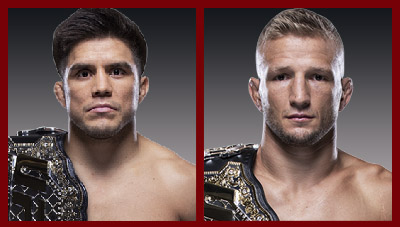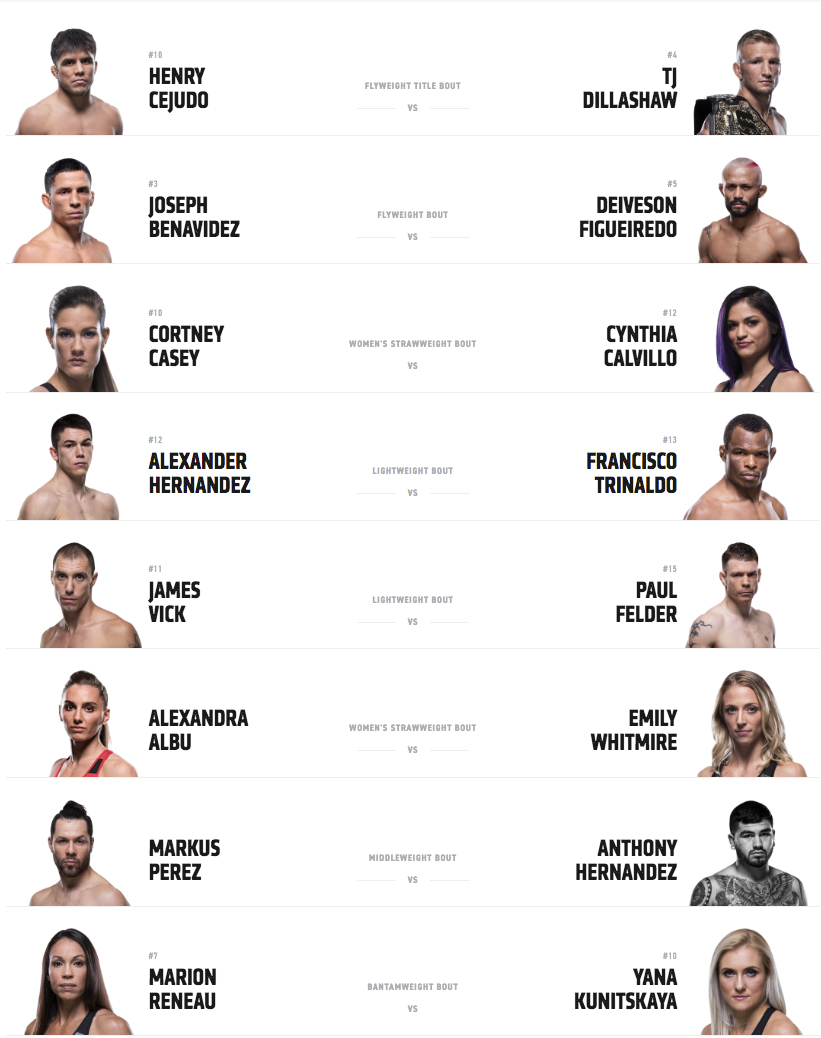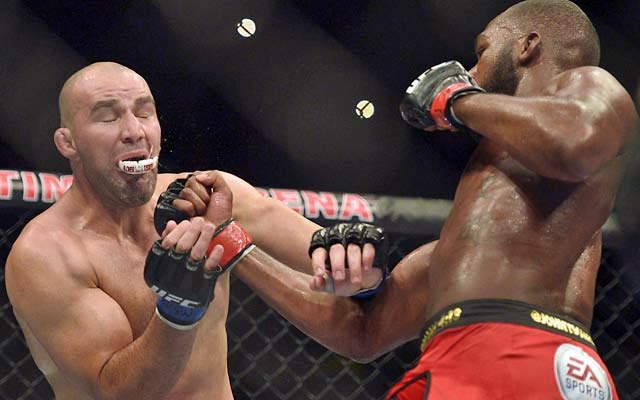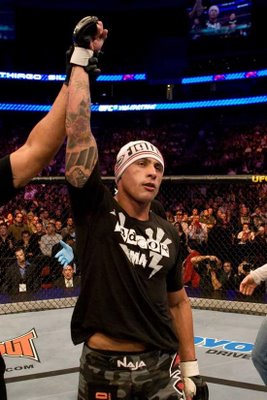Last Wednesday, the UFC sent out a press release confirming what many of us thought was going to happen. The promotion took the drastic step of postponing UFC 233, which was due to take place January 26 at the Honda Center in Anaheim, California. It’s only the third pay-per-view the UFC has ever postponed, after UFC 151 in 2012 and UFC 176 in 2014. It’s embarrassing to say the least, and the UFC is strategically using the word “postponed” instead of “cancelled” to try to blow it off. But as embarrassing as it as for the UFC to cancel a show, it’s the right call.
First of all, UFC 233 didn’t have a main event and there was no one available to fight. After the flyweight title fight between Henry Cejudo and TJ Dillashaw was moved to UFC on ESPN+ 1, the UFC tried its best to book UFC Welterweight Champion Tyron Woodley against either Colby Covington or Kamaru Usman as the new main event. But Woodley’s hand is injured and he was not medically cleared to fight, which necessitated the postponement of the event. Again, postponement is a nice term to describe the card being cancelled. Like UFC 151 and UFC 176, UFC 233 is never going to happen.
So instead of making fans shell out a standard pay-per-view price for a subpar card, the UFC smartly doubled back and decided to move the fights that were set for this event to other cards, strengthening those events in the process. For example, Joseph Benavidez was scheduled to fight Deiveson Figueiredo at UFC 233 but Benavidez will now be the back-up flyweight contender at UFC on ESPN+ 1 in case something happens to Cejudo or Dillashaw. A welterweight bout between Ben Askren and Robbie Lawler was expected to happen at UFC 233 but was instead shifted to UFC 235 in March, which works out better since Lawler apparently needs more time to train. All the other fights on the card, including an exciting lightweight matchup between Paul Felder and James Vick, have been moved to other cards spanning from January to March. UFC 233’s loss is the gain of these other events.
With this cancellation news, it’s not surprising that UFC President Dana White has been so combative in the media lately against Oscar de la Hoya, ripping his Golden Boy MMA promotion for its lack of fighter pay and for booking Chuck Liddell against Tito Ortiz. The MMA media has been eating this story up and ignoring the fact the UFC just cancelled one of its pay-per-view events. White has done a marvellous job of deflecting criticism away from the card’s cancellation, and it seems like fans and media have quickly moved on from it, even though it’s only been a few days since it was officially shelved.
But ultimately, the UFC made the correct call, so perhaps that’s why the MMA world has been so forgiving. The company correctly identified UFC 233 as a card that no longer lived up to the standard of what a UFC pay-per-view should be. However, it only served to underscore the greater point about there being far too many UFC PPVs a year. The company has held 13 PPVs a year for the longest time, and is now expected to do 12 in 2019. But the fact that one of the events couldn’t go on as scheduled because there was no headliner available should tell the UFC brass that they are simply doing too many events. Hopefully this is a wakeup call for White and the rest of the UFC brain trust, because there just aren’t enough stars these days to headline 12 PPVs a year. But knowing the personalities involved, they’re probably still going to try and squeeze as many PPVs in as they possibly can.
UFC 233 was due to take place January 26, 2019 at Honda Center in Anaheim, California. The UFC announced its postponement on December 12, 2018.
Click HERE for more UFC 233 Pre-Fight Analysis








